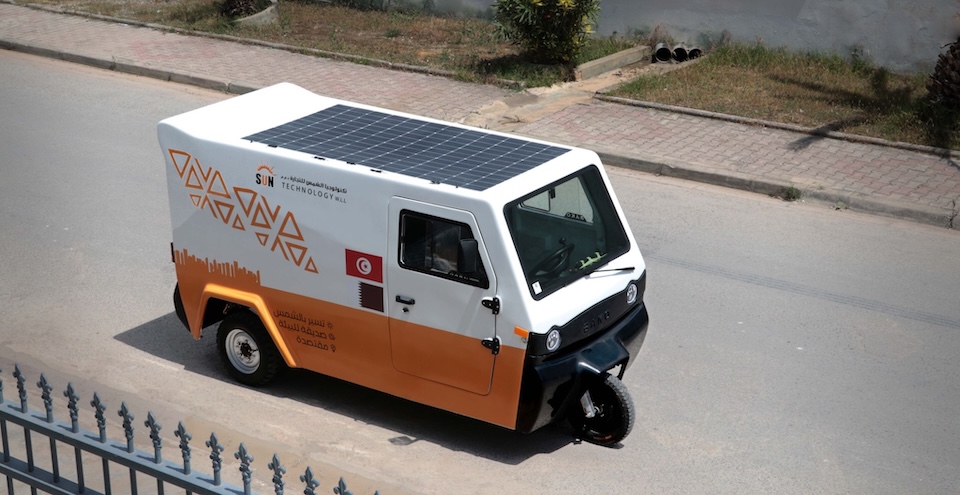
This is a free preview of the upcoming Africa EVs Weekly Digest, part of the new CGSP Intelligence service.
Chinese automakers are gaining a foothold in African countries, as they also expand in Asia and South America. In emerging markets where affordability matters, these low-priced vehicles appeal directly to consumers who would have found new European, Japanese, or American brands too expensive.
The shift is most evident in markets traditionally dominated by legacy manufacturers such as Toyota, Nissan, Honda, Volkswagen, Fiat, and Renault.
This trend signifies more than just a shift in brand preference. It points to a major restructuring of global automotive supply chains and market influence—where China’s manufacturers, once excluded from many markets, are now formidable competitors in regions long considered peripheral to the industry’s core. As they expand globally, the balance of power in the auto industry may be quietly but decisively shifting.
This week on Africa’s EV scene:
How Chinese EV Makers Are Building a Lead in African Countries [Video]
Chinese electric vehicle (EV) makers are entering the African market in unconventional and highly strategic ways, often bypassing the traditional auto industry playbook.
Since China will not relinquish its low-end manufacturing jobs (which would have helped developing economies advance up the development ladder), this reality is also a wake-up call for nascent EV markets across Africa.
Why This Matters: African electric vehicle startups face an uphill battle against the deep pockets and formidable influence of Chinese automakers, who are moving aggressively to capture a market still finding its footing. Should Chinese firms dominate too quickly, local players risk losing both momentum and the leverage needed to negotiate meaningful partnerships—potentially losing an opportunity to define African industries’ own future via external collaboration.
Tunisian Startup’s Solar-Powered EV Plans
The Tunisian startup Bako Motors is launching compact cars and trucks equipped with rooftop solar panels that will not only allow them to recharge batteries while driving or parked, but also cut charging costs for drivers.
The company has produced about 100 vehicles and plans to scale up production and exports in the coming year.
Why This Matters: Competition across Africa’s auto market is intensifying, and the manufacturers that can deliver affordable, practical solutions for everyday drivers stand to strike gold. With the continent’s untapped solar energy, a solar-powered vehicle could prove transformative for nations that still depend heavily on costly imported oil.
MojaEV Shifts EV Assembly From Mombasa to Athi River
Chinese electric vehicle manufacturer MojaEV has unveiled plans to set up a local EV assembly and manufacturing plant in Athi River, raising questions about its earlier plans to assemble the vehicles in Mombasa.
The company says construction is expected to begin in early 2026.
Why This Matters: The abrupt shift of plans by MojaEV follows Hozon Auto, Neta’s parent company, declaring bankruptcy in China. Could this be the reason the company has delayed assembly and is now moving locations?
Chinese Hybrids Take Center Stage at The Ghana Transport and Logistics Fair
Hybrid vehicles that combine electric and combustion technologies were some of those on display at the Ghana Transport and Logistics Fair last week. The Inaugural event featured some of China’s automakers, including Chery and Great Wall Motors (GWM), showcasing their vehicles.
Why This Matters: In some African countries, such as South Africa, hybrid vehicles have become a testing ground for customers seeking to shift to e-mobility. Hybrids could become more common across the continent as the campaign to electrify mobility gathers pace.
In context
Chinese automakers’ unconventional expansion strategies increasingly shape Africa’s electric mobility landscape. Their growing dominance underscores a central dilemma: whether to leverage Chinese expertise for rapid progress or risk becoming dependent on foreign control over emerging EV value chains.
The takeaway:
At the same time, innovation from other players, such as Tunisia’s solar-powered Bako Motors, is far from one-dimensional. Startups and foreign investors alike are experimenting with models suited to Africa’s realities: solar-driven mobility, hybrid vehicles, and localized assembly, meaning that Africa’s road to electrification will be anything but conventional.
